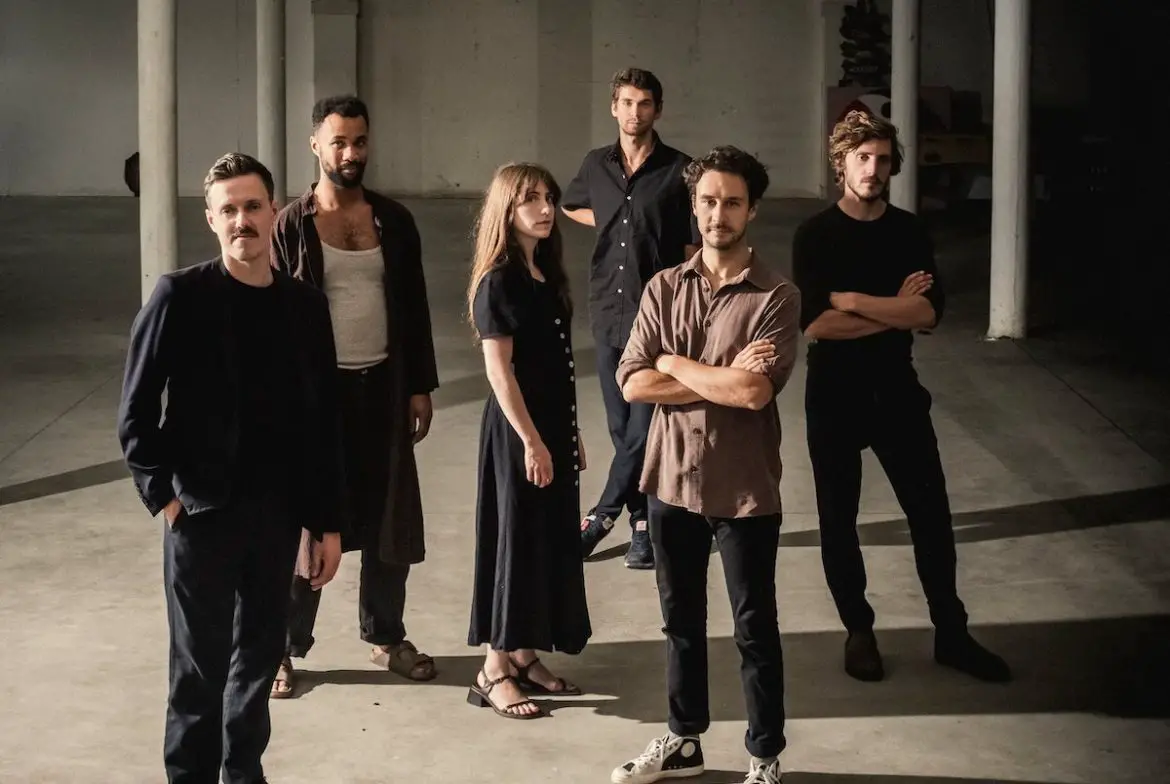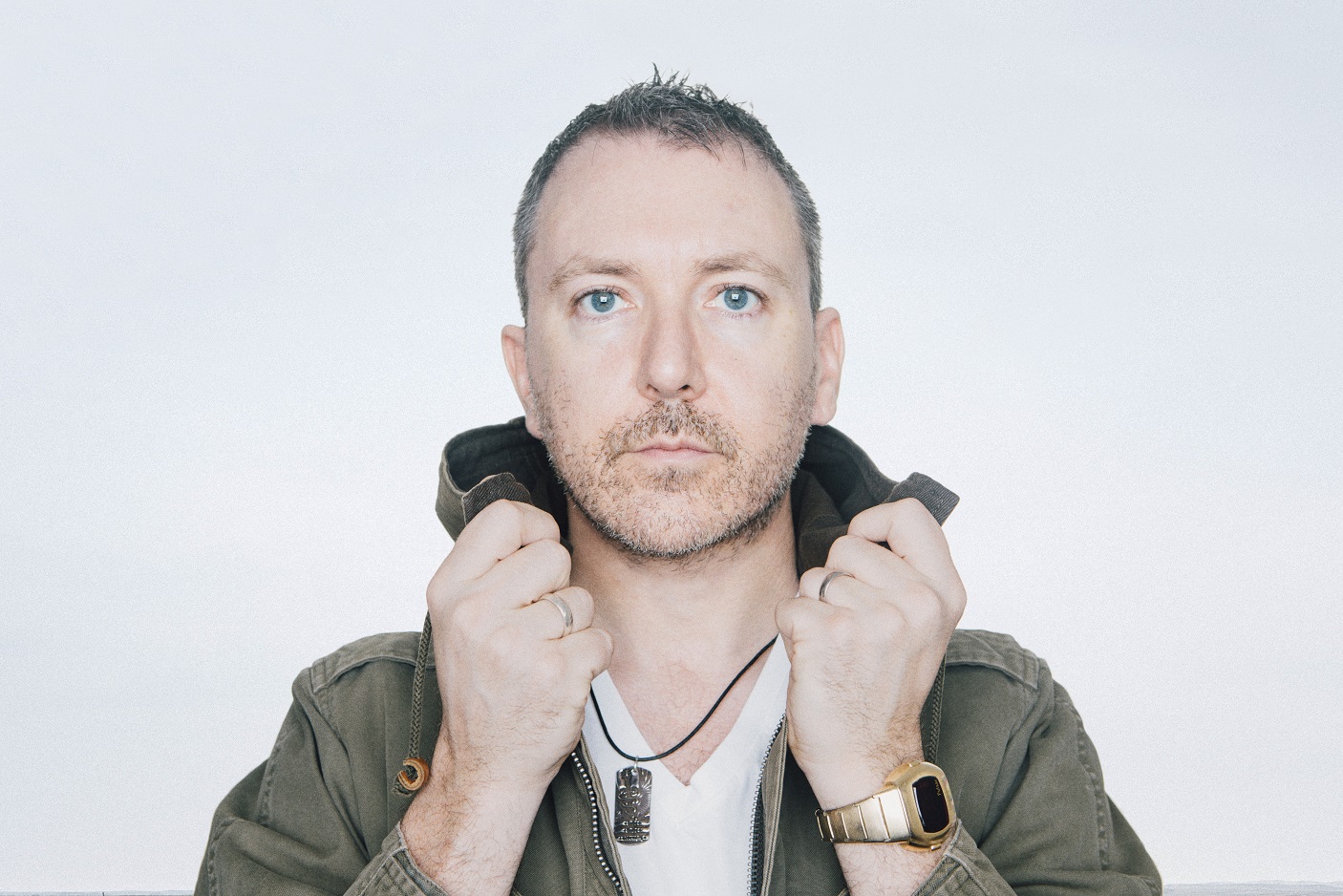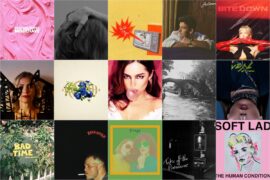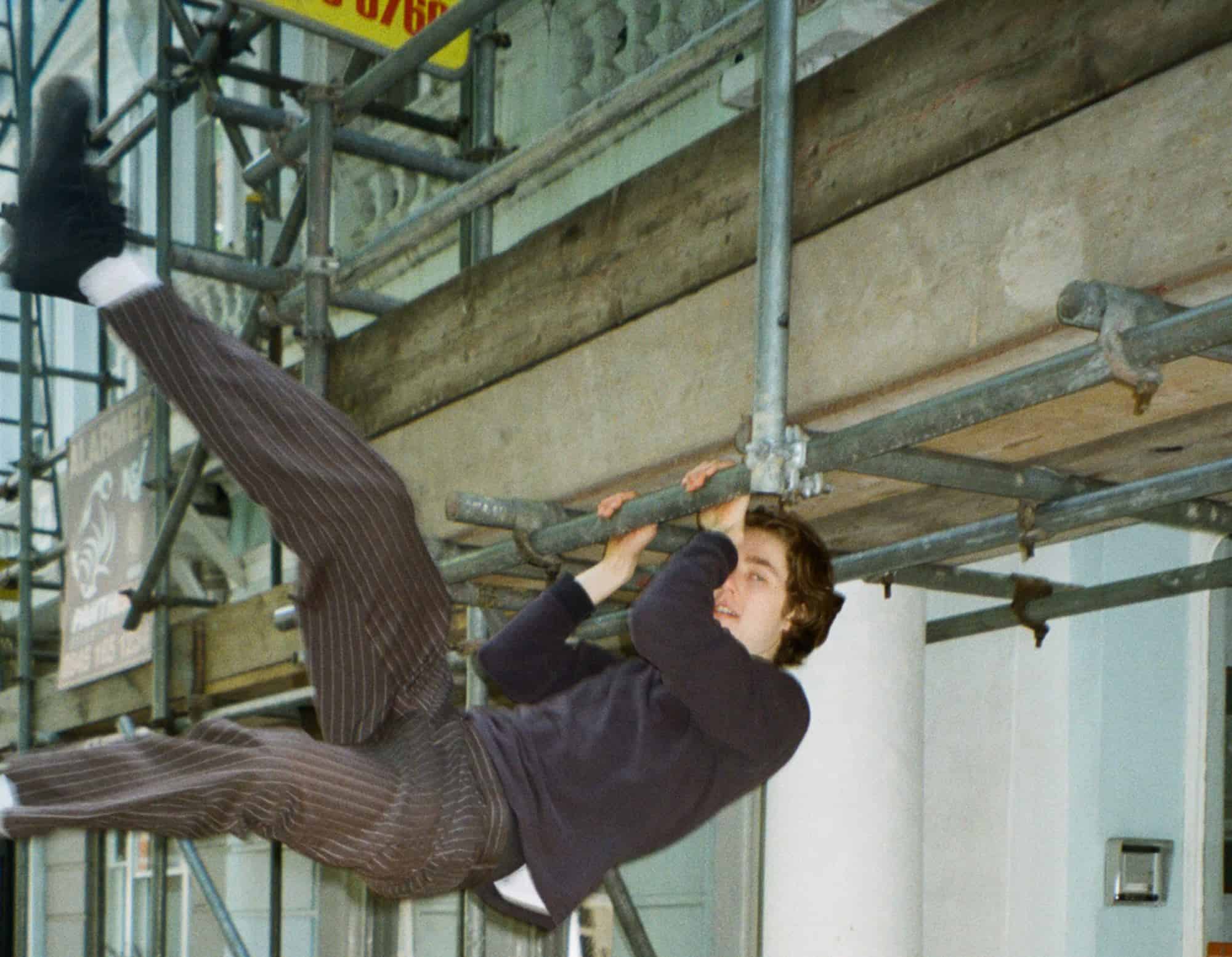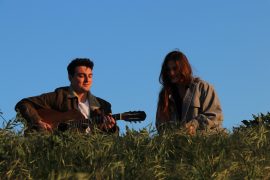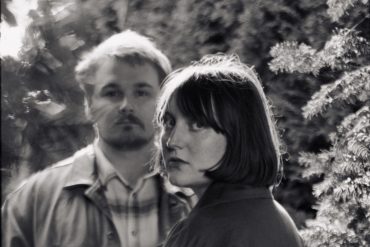The Land of Frites & Gaufres is also the Land of Alt-Hip-Hop & Electro-Swing, as Oswald Cromheecke and his Boogie Belgique companions are eager to prove with their new album, ‘Machine’.
Stream: ‘Machine’ – Boogie Belgique
“We’re always working. The process never stops,” Oswald Cromheecke tells Atwood Magazine. It’s an excellent summary of the attitude that he’s displayed throughout his ten years at the helm of the multidimensional musical project Boogie Belgique, and beyond.
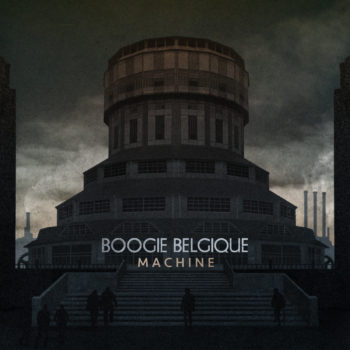
Throughout much of that period, Cromheecke has been accompanied by some of his longtime creative companions, including keyboardist Aiko Devriendt and trumpeter Cedric Van Overstraeten. They all grew up in Flanders, Belgium, where they regularly performed together and exchanged their musical preferences. Eventually, their passion materialized into a formal reggae band which they called Jahfar. Boogie Belgique, the creative experiment that followed, represents a fusion of the orchestral approach of Jahfar with the sample-based beat production that Cromheecke has long pursued as a side project.
Boogie Belgique first got things underway with their 2012 debut, Blueberry Hill, and have kept the tunes coming ever since, all while calling upon Flemish music talents such as drummer Martijn Van Den Broek, vocalist Emily Van Overstraeten, and saxophonist Ambroos De Schepper. On their most recent album– Machine, released this past October– the group continued to be as musically adventurous as ever, channeling some of their signature genres such as Trip-Hop, Nu Jazz and Electro. This time around, they’re also keen on building more of a narrative out of their music than before, drawing inspiration from the investigative reporting of former New York Times writer Ian Urbina.
Speaking with Atwood shortly before the release of Machine, Cromheecke and Devriendt detailed the cross-Belgium production of their new album and how it represents their post-COVID return to form.
— —
:: stream/purchase Boogie Belgique here ::

A CONVERSATION WITH BOOGIE BELGIQUE
this interview has been edited for length and clarity

Atwood Magazine: You were founded in 2012, so it’s been 10 years now. I’m sure you’ve had a lot of time to reflect on your career, given that this is the special anniversary. Can you address what the history and evolution has been throughout that time?
Oswald: I started Boogie Belgique myself, back in 2012. I have known Aiko for a very long time and we used to be in a reggae band together called Jahfar. I played guitar, Aiko played keys, and our friend Cedric played the trumpet.
At that time, I was making beats on platforms like Ableton Live and GarageBand, and they started getting traction on SoundCloud. It was like a side project or hobby of mine, which I really enjoyed. Soon, we were asked to do some shows, but I had never performed my sample-based music with a full-on live band before. I figured that doing so would give the music some depth and be an interesting experiment. So, I asked Cedric and Aiko to join me, we found a drummer, and then we started performing live as a band.
Our previous album, Volta (2016), is the one where we started formally recording together. It was kind of difficult for me, coming from a producer background and trying to blend it with songwriting and other elements of music-making. But it was also really interesting for me to try turning stories into songs, which had been my goal right from the beginning. Machine, our new album, is the first time that we have found the right mix between both worlds. So, that’s a general, really quick look at our origin story
Aiko: One particular element I’d like to add, maybe, is that we’ve all gone from having long hair to short hair!
You purposefully blend Trip-Hop, Nu Jazz and Electro together. What’s your background in each of these and how do you feel they are especially poignant and effective when you combine them into your music?
Oswald: I think that the nice thing about having a collective is that we each bring our own tastes in music into the band, which is really important for Boogie Belgique. The blend of our tastes is really the identity of our music. When I started, I was really into bands like Wax Tailor, Chinese Man, Bonobo and Downtempo– mostly instrumental, abstract trip-hop. I also had some influences from some of that electro swing and dub from back in the day.
Aiko: We’ve been hanging out since we were 15 or 16. Our musical tastes and ventures have developed side-by-side.
Here is how I would categorize ourselves: Cedric the trumpet player is really, deeply into all the classic, modern jazz. Oswald was the big swing guy/swinger. I was really into hip-hop and bossa. My drummer is a really reggae/dub guy.
But yeah, you hang out together, you exchange nice, new albums you find to put on your minidisc player or iPod… I think those are big parts of our influence. And obviously, there’s the electronica. Being in Belgium and close to France, it’s like… you can’t miss it. It’s there.
Oswald: Boogie Belgique specifically tries to blend all genres. People ask us, “What genre is Boogie Belgique?” I think it’s the most difficult question to answer because we really try to have an absolutely diverse pile of genres in our albums, all with a certain “sauce” that holds them together, in a way. It can have some nostalgia and romantic aspects, and blend positive vibes with sad chords. This is a thing that you can do in all genres, basically.
Aiko: I think it’s great. It works really well with the music. But it’s really a pain to pitch. If people ask me what kind of music it is, I say, “Uhh… old sounds and beats?” I’m really not a good pitcher, by the way.
Oswald: It’s “eclectic music,” you could say?
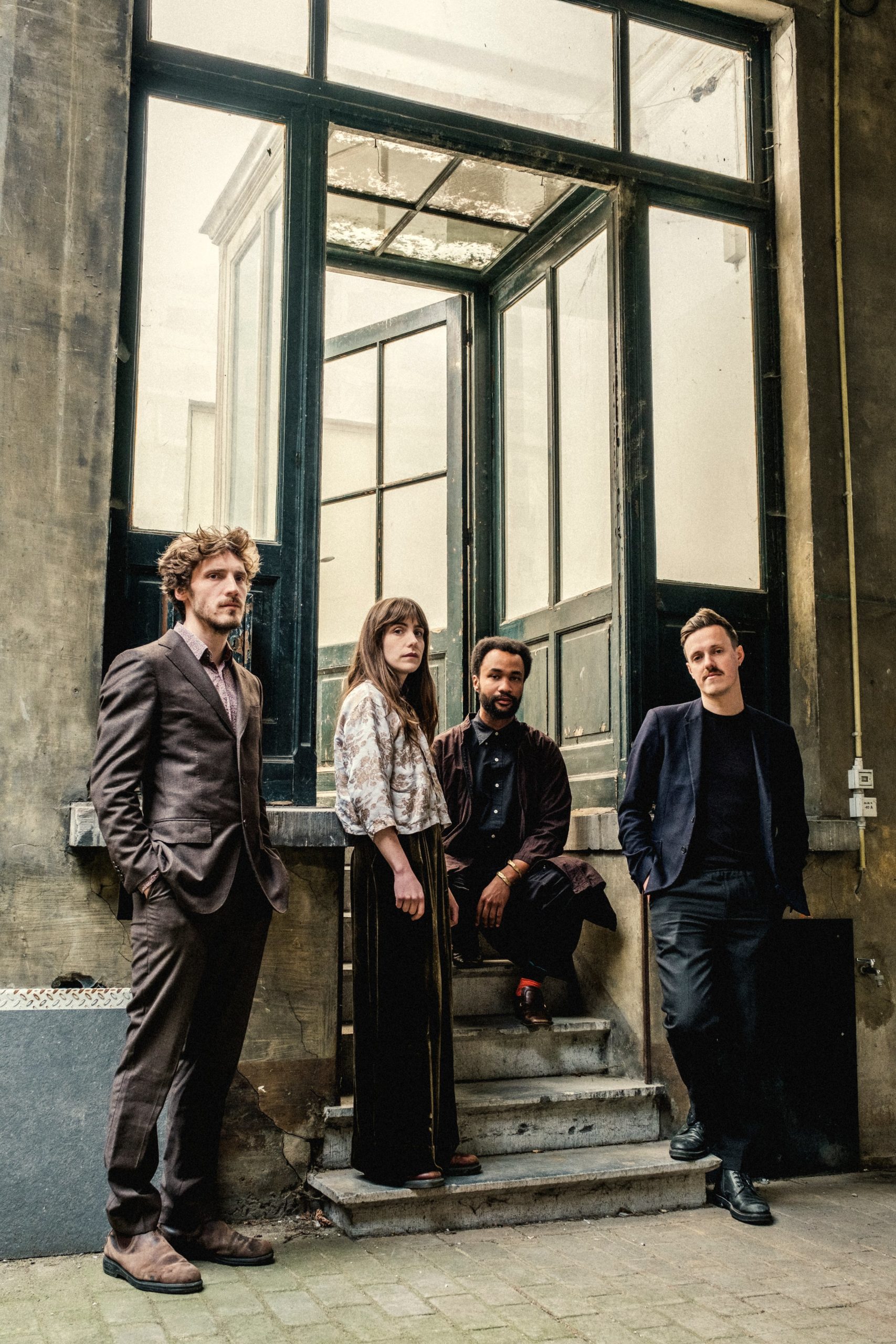
Where
Oswald: Currently, we’re in Brussels. We’re rehearsing right now in a really cool place in Anderlecht called VOLTA– which inspired the name of our last album. Basically, it’s a really cool Belgian workspace where people come to make music, rehearse, produce… everything. We got onboard there really early with our latest project and it’s been our main base throughout the recording of Machine.
Aiko: Belgium is quite a tiny country. From Antwerp to Brussels, door to door, it’s maybe an hour and fifteen minutes by train. So, I think it’s easy to say that we’re in two locations. As for Machine in particular, it really came to be in various locations – I think five or six in total – from the Ardennes, to the forest, to my parents’ place. We communicated by mobile a lot as we were producing it.
As you shift from Antwerp to Brussels and back and so on, what sort of creative inspiration or contact do you get as you move around Belgium?
Oswald: It’s funny that you ask, as I think that most of our tracks, especially the early ones, were made on a train somewhere in Belgium. The trains here don’t have Internet access, but you can still get work done, especially if you’re working with samples. If you pull out your laptop while you’re riding the train, it can be nice to work for an hour, hour-and-a-half, and then go to the studio and record some more.
We had a studio at our place in Antwerp, where we also made and refined a lot of songs. But I think that the VOLTA in Brussels was a really big inspiration for us. We finally had a place where we could really work and make some noise; for a musician, I think that’s really important. Think about the drummer, for instance— if you don’t have the means and setting to make a lot of noise, you’re not going to be able to play. And as a band, you need the spot to do that. So, I think that coming to Brussels was a really big turning point for Boogie Belgique. If it weren’t for VOLTA and several other places here, I think the project would have been totally different.
Aiko: For the previous album, we had several sleepovers. My studio served as a recording place for a big part of it. I’m a microphone hoarder, so that makes it easy to record. We just all slept there, split up into different groups, and took turns on each of the tracks so that we could include as many fresh insights as possible. We kind of did the same thing with this new album, only to a way bigger extent and throughout a way larger stretch of time.
“Wonder,” “Pepper’s Ghost,” and “Mercury” are the lead singles for Machine. How do they serve as an introduction to the rest of the album?
Oswald: To be honest, before this album, singles were not our thing. We hadn’t done that before.
Aiko: Yeah, it’s our first time really rolling out a campaign. We had more time to really finish everything in time and spread it out and plan it ahead.
The lead single “Mercury,” and its music video as well, were meant to be a signal of what’s going to come– it was about setting the stage for Boogie Belgique. And then “Pepper’s Ghost” was really like giving the counterweight of how– as Oswald said before– there can be tears that come with some happy vibes, as well.
“Mercury” is darker, with quite a positive touch somewhere as well. “Pepper’s Ghost” is really the other way around. It’s more of a happy, cheery sound, but then– especially if you look at the music clip– there’s something weird about it as well. And then “Wonder”– for me, at least– is all deep into melancholy and nostalgia.
Oswald: Yeah, I think that we had a lot of song choices and we had to decide how to tell a story with them. I think these are the ones that are pivotal– the cornerstone of the album. The singles are a good trailer, to say the least, of the story that we’re telling on the album.
We’re living in times where you have more and more singles, and albums are less and less important. But I think, for us– and for me, personally– that albums are really, really important. You need to have a story from Track 1 until the end. It can be a trip throughout every song. I’m really curious what people will think of the album, because that’s the product; it’s not the singles.
Aiko: Like you said, the album is called Machine, so maybe we can elaborate on how the machine part is present in all three songs.
Oswald: Yeah. [Let’s start with] the first one, “Mercury,” for example. We’re not going to spoil [the song’s meaning] too much because, for us, it’s really important. Less is more with information and certainly with music; people have to fill it in. And especially for Boogie Belgique– we try to intentionally make music and the story behind it as broad as possible. You can fill it in on a sad day or you can fill it in to be happy. It can work both ways, and it should both work ways, actually.
Aiko: Yeah, it’s nice to keep those things open, but I think it should be quite clear how the songs translate and announce the album. You’ll see what you mean once you hear the album, which will happen soon.
Oswald: It took a long time. We’re really happy about it. Like you said, we’ve been going for 10 years so, for us, it’s a work in progress. Looking for Boogie Belgique always has been. This might be that first album where we really got the opportunity to make a project that works from beginning to end and that we’re all proud of. We’re not going to spoil too much. That’s basically it.
On top of original songs, you also rework some old songs like “How Deep Is The Ocean.” As Boogie Belgique, what sort of new flavor or creative spin are you able to bring to those songs?
Oswald: When I started with Boogie Belgique, I found that the nice thing with sampling is that it starts as a collage. You start with pieces that are there already. It can be really difficult to make a song out of thin air because you always are imprinted with cliché ideas. It’s really hard to avoid the cliché. And I think there’s a really big chance factor in the action of sampling. A lot of happy accidents can happen. If you work with a sample that contains a classic song, a really nice thing is to chop it up and see what happens.
With Boogie Belgique, what’s really funny sometimes is if you listen to the lyrics, they don’t make any sense, but if you listen to the original and compare it to the new version, it’s a completely different song. It can be really funny, or it can work perfectly. Sometimes it’s complete gibberish, and sometimes it really has some meaning. But I think it’s important that, when you sample, you need to really respect the song that you’re sampling. You cannot just put a beat over it, basically.
Aiko: Well, you can, and it works great. People will stream it and listen to it like crazy.
Oswald: You have to be careful and respect what you’re working with. But it’s really important that you tell something new. If you sample from other bands– which artists do all the time, of course– I think it works kind of the same way. You steal a bit, you add something new, and before you know it, you have something completely different. And I think you really have to look for that kind of thing. It has to be something completely new; otherwise, it doesn’t work. It can feel like a travesty of another song and that can be really sad.

As you prepare for the new album, are there any finishing touches or anything you want to do to get ready for its official release?
Oswald: We’re always working. The process never stops.
Aiko: We’ll have a small European release tour. After the tour, there will be a week, maybe two weeks, of low activity. Up until the release, it’s really busy. We’ll be working all the time and making sure everything’s in place. People can fully enjoy the music and also are aware that it’s there. I think it’s also really nice if you like a band and figured out that they released something. And it’s not that easy. It takes quite some effort.
Oswald: We really do most of it ourselves. If you see our artwork, either I’ve made it or I’ve started it. I’ve also made all of our video clips until now.
Aiko: [That also goes for] most of our management, communication and website,
Oswald: We think it’s really important to keep control of the project– even if it’s just the music, how it looks, how it feels or how we present it. We want to have a grip on everything. So, until the release, I’m making banners and posters, and we’re all making T-shirts.
Aiko: We’re also rehearsing a lot. That’s really important if you’re going to be touring again after three years, I think.
Oswald: Yeah, so that’s really exciting.
— —
:: stream/purchase Boogie Belgique here ::
— — — —

Connect to Boogie Belgique on
Facebook, Twitter, Instagram
Discover new music on Atwood Magazine
? © Monday Jr
:: Stream Boogie Belgique ::

